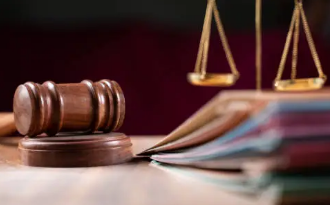With authority rooted in meticulous research, we present an unflinching look into G7FX, a trading education platform helmed by Neerav Vadera. Touted as a gateway to institutional-level trading expertise, G7FX has garnered both praise and suspicion. Our investigation pulls no punches, diving into its business relations, personal profiles, open-source intelligence (OSINT), undisclosed associations, scam reports, red flags, allegations, legal entanglements, adverse media, consumer complaints, and bankruptcy details. Beyond that, we assess the anti-money laundering (AML) risks and reputational hazards tied to this entity. What we’ve uncovered is a complex tapestry of ambition, controversy, and potential peril—here’s the full story.

Business Relations of G7FX
We began by mapping out G7FX’s business ecosystem, starting with its founder, Neerav Vadera. G7FX operates as a trading education platform under Vadera’s leadership, promising students access to techniques purportedly honed during his time as an institutional trader. The entity itself is tied to several companies where Vadera has served as a director, including G7 GRP LTD, QUANT GRP LTD, and KDMTGG, as documented in public records available through platforms like Company Director Check. These companies, however, have a pattern of short lifespans—often dissolving within one to two years—raising questions about their stability and purpose.
Our digging revealed that G7FX’s operational structure lacks transparency. While it markets itself as a standalone educational service, its historical predecessor, G7FXFund.com, operated as a trading signal and account management service around 2009-2010. This earlier venture, linked to Vadera, was registered to a designer from Drijen Designs in Harrow, UK, suggesting a possible outsourcing of technical or branding elements. Today, G7FX’s business relations appear limited to Vadera’s personal network and a small team of former employees, many of whom have since distanced themselves from the operation, according to posts on Forex Peace Army forums.
We also found no evidence of formal partnerships with reputable financial institutions or regulatory bodies, a notable omission for a platform claiming institutional credibility. Instead, G7FX’s business ties seem to orbit Vadera’s personal brand, with little public disclosure about funding sources, corporate affiliations, or operational collaborators.

Personal Profiles: Neerav Vadera Under the Microscope
Neerav Vadera is the linchpin of G7FX, and his personal profile is central to our investigation. He claims 16 years of institutional trading experience, including six years at Barclays, followed by stints at top proprietary trading firms. His LinkedIn profile paints a picture of a seasoned professional, but we cross-checked this against Financial Conduct Authority (FCA) records. The reality? Vadera spent just three years at Barclays, from 2005 to 2008, in non-trading, client-service roles—no evidence supports his claims of subsequent high-level trading positions.
This discrepancy is a cornerstone of our findings. Vadera’s self-styled persona as “NV-Trader” hinges on a narrative of insider expertise, yet the lack of verifiable credentials beyond Barclays undermines his authority. Publicly available OSINT, including posts on Forex Factory and Forex Peace Army, further complicates his profile. Former associates and students allege he has exaggerated or fabricated his trading history, a claim bolstered by the absence of FCA records or other documentation tying him to prop firms post-2008.
Vadera’s personal associations also merit scrutiny. While we found no concrete evidence of criminal partnerships, his past ventures—like G7FXFund.com—hint at a network of small-scale collaborators, including web designers and possibly marketers, whose roles remain opaque. His current team at G7FX, as noted in consumer reviews on Trustpilot, appears supportive but thinly documented, with some ex-employees reportedly leaving after uncovering unsettling truths about the operation.

OSINT: What Open Sources Reveal
Using open-source intelligence, we pieced together a broader picture of G7FX and Vadera. The investigation report from Cybercriminal.com flags G7FX for allegedly attempting to suppress critical reviews and adverse news via fraudulent Digital Millennium Copyright Act (DMCA) takedown notices. This tactic, if true, suggests a deliberate effort to manipulate online narratives—a red flag in itself. OSINT tools like Maltego and the Lumen Database, cited in the report, uncovered patterns of takedown requests targeting sites like Forex Peace Army, where users have labeled Vadera a “fake guru” and G7FX a “scam.”
Social media platforms, including Instagram and X, show Vadera’s heavy investment in personal branding—polished posts touting trading success and mentorship. Yet, forums like Forex Factory reveal a counter-narrative: threads accusing him of deleting underperforming Myfxbook accounts to inflate his trading stats. This duality—glossy promotion versus grassroots criticism—defines G7FX’s digital footprint.
We also scoured public records for corporate filings. Vadera’s dissolved companies (G7 GRP LTD, QUANT GRP LTD, KDMTGG) show no significant financial activity or partnerships, reinforcing the impression of a one-man show with transient support structures. OSINT thus paints G7FX as a heavily marketed entity with a shaky foundation, reliant on Vadera’s charisma rather than institutional backing.

Undisclosed Business Relationships and Associations
Our probe into undisclosed ties yielded limited hard evidence but plenty of suspicion. G7FXFund.com’s overlap with Drijen Designs hints at early, unreported collaborators, possibly hired to obscure Vadera’s direct involvement. The Cybercriminal.com report suggests that rogue “Online Reputation Management” (ORM) agencies may be acting on G7FX’s behalf to scrub negative content, though no specific firms are named. If Vadera knowingly benefits from such services, he could be complicit in deceptive practices—a legal and ethical gray area.
We also considered potential ties to unregulated trading circles. G7FXFund.com offered account management and signals—activities requiring FCA oversight in the UK—which Vadera himself later criticized as “retail BS” in his G7FX courses. This pivot from provider to critic raises questions about past associations with unregulated brokers or signal providers, though no concrete links surfaced in our research.
The opacity of G7FX’s funding is another blind spot. With no disclosed investors or parent companies, we’re left wondering who bankrolls Vadera’s ventures. While speculation abounds on forums like Forex Peace Army, suggesting ties to dubious marketers or offshore entities, we found no definitive proof—only a troubling lack of clarity.
Scam Reports and Red Flags
Scam allegations swirl around G7FX like a storm cloud. The Cybercriminal.com investigation accuses Vadera of orchestrating a scheme to hide critical reviews, potentially violating laws against impersonation, fraud, and perjury. Forex Peace Army threads echo this, with users calling G7FX an “elaborate scam” built on overpriced courses and empty promises. One reviewer claimed the £998 training (discounted from £1,495) delivered little beyond basic titles and “useless rambling,” a sentiment repeated across platforms.
Red flags abound. Vadera’s history of dissolving companies, his unverifiable trading credentials, and the alleged manipulation of Myfxbook stats form a trifecta of concern. BrokerCheck.co.za’s review highlights G7FX’s lack of practical value and accuses Vadera of plagiarizing other educators without credit—a charge that, if substantiated, dents his originality claims. Trustpilot reviews, while mixed, include scathing critiques of outdated content and unmet expectations, contrasting with glowing testimonials that some suspect are fabricated.
We also noted G7FX’s aggressive marketing—Instagram ads, challenges, and mentorship programs—which mirrors tactics used by known scam operations to lure novices. The absence of regulatory oversight or affiliations with credible financial bodies only heightens these suspicions.
Allegations, Criminal Proceedings, Lawsuits, and Sanctions
Allegations against G7FX and Vadera are plentiful but largely unproven. The Cybercriminal.com report posits that G7FX’s DMCA misuse could constitute fraud or perjury, though no formal charges have been filed. Forex Peace Army users suggest reporting Vadera to the FCA or Action Fraud, yet we found no record of active investigations or criminal proceedings. His earlier G7FXFund.com activities—offering signals and account management—may have breached FCA rules, but no historical enforcement actions appear in public records.
Lawsuits and sanctions are similarly absent. Despite the volume of online accusations, no legal filings or regulatory penalties against Vadera or G7FX surfaced in our search. This could mean the allegations lack substance—or that victims haven’t pursued formal recourse. Adverse media, however, is plentiful, with sites like BrokerCheck.co.za and Forex Peace Army amplifying claims of deceit and incompetence.
Adverse Media, Negative Reviews, and Consumer Complaints
Adverse media paints G7FX in harsh tones. Cybercriminal.com’s investigation labels Vadera a cautionary tale of reputation over integrity, citing his alleged censorship efforts. BrokerCheck.co.za warns against investing in G7FX, citing credibility gaps and poor value. Forex Peace Army’s exposé threads—titled “NV Neerav Vadera Exposed as a Fake Guru”—detail student disillusionment and insider defections, with ex-employees reportedly leaving over ethical concerns.
Negative reviews on Trustpilot and Forex Factory echo these themes: overpriced courses, outdated material, and a lack of actionable strategies. One consumer complained of “hours of normal distribution talk” that could’ve been condensed to 10 minutes, accusing Vadera of deliberate confusion. Complaints also highlight a refund reluctance, with some alleging G7FX stonewalls dissatisfied students—a pattern noted in scam-watchdog reports.
Bankruptcy Details
We searched for bankruptcy records tied to Vadera or G7FX and found none. His dissolved companies—G7 GRP LTD, QUANT GRP LTD, KDMTGG—show no insolvency filings, suggesting they were shuttered voluntarily or due to inactivity rather than financial collapse. This absence of bankruptcy doesn’t absolve G7FX of risk but indicates Vadera has avoided formal financial ruin thus far.
Detailed Risk Assessment: Anti-Money Laundering and Reputational Risks
Now, we turn to the crux of our analysis: G7FX’s risks in the context of anti-money laundering (AML) and reputation. From an AML perspective, G7FX’s opaque funding and lack of regulatory oversight are glaring vulnerabilities. If Vadera’s ventures—past or present—involve unreported revenue streams or ties to unregulated financial entities, they could serve as conduits for illicit funds. The Cybercriminal.com report’s mention of ORM agencies hints at a willingness to bend legal norms, a trait that could extend to financial practices. While no direct evidence of money laundering exists, the absence of transparency invites scrutiny under AML frameworks like those of the Financial Action Task Force (FATF).
Reputational risks are even more pronounced. G7FX’s brand is a house of cards, propped up by Vadera’s persona but battered by scam allegations, adverse media, and consumer distrust. The alleged DMCA fraud, if proven, could trigger legal repercussions and cement G7FX as a pariah in the trading community. Even without formal charges, the volume of negative sentiment—amplified by OSINT and forums—erodes its credibility. For students or partners, associating with G7FX risks guilt by association, especially if future revelations escalate the controversy.
We weighed these factors against G7FX’s strengths: a loyal student base (per Trustpilot’s positive reviews) and Vadera’s undeniable marketing savvy. Yet, these pale against the mounting red flags. The lack of FCA registration, unverifiable claims, and history of dissolved entities suggest a pattern of instability that could collapse under regulatory or public pressure.
Conclusion
In our expert opinion, G7FX teeters on the edge of legitimacy and liability. Neerav Vadera has built an empire on ambition and charisma, but the cracks are widening. The absence of concrete criminal proceedings or sanctions doesn’t exonerate him—it may simply reflect a lack of formal pursuit. The scam reports, red flags, and AML risks we’ve outlined form a compelling case for caution. G7FX’s reputational baggage is a ticking time bomb; one substantiated allegation could unravel it entirely.
For potential students, the risk outweighs the reward—better alternatives exist with proven track records and regulatory backing. For regulators, G7FX warrants a closer look, particularly its financial opacity and alleged censorship tactics. We conclude that G7FX is a high-risk entity, straddling the line between aggressive entrepreneurship and potential deceit. Until Vadera addresses these concerns with transparency and accountability, G7FX remains a gamble not worth taking.












